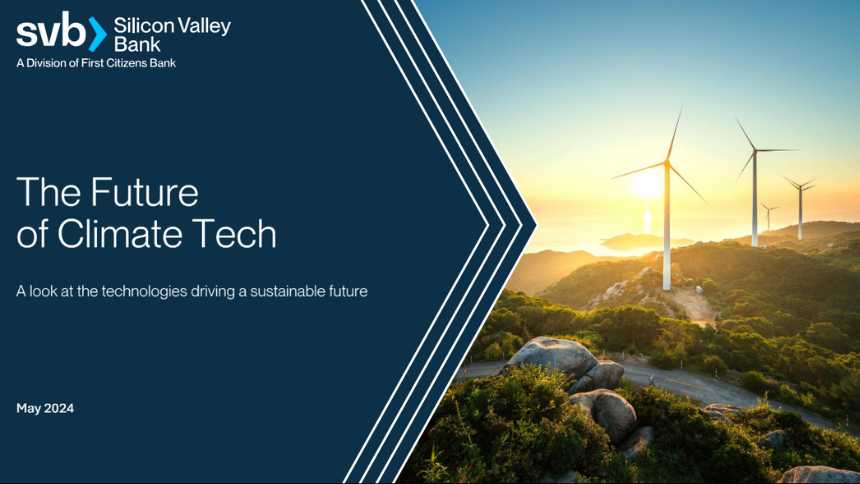
Silicon Valley Bank issues new report on climate tech
The Executive Summary notes that the tailwinds for climate tech abound, even as the sector is impacted by the decline of overall venture capital (VC) investment.
A new report from Silicon Valley Bank (SVB), now a division of First Citizens Bank, notes that the challenges to avert climate change remain considerable, but the long-term technology trends are clear and bright.
“It is now cheaper to develop new renewable energy than it is to maintain fossil fuel generation,” writes Dan Baldi, SVB’s National Head of Climate Tech and Sustainability in the report titled “The Future of Climate Tech.” He notes that roughly 88 percent of global carbon emissions are now covered by a net zero goal, and policies such as the ‘Inflation Reduction Act’ (IRA) are beginning to have a meaningful impact on advancing climate tech solutions and businesses.
Entrepreneurs and investors are increasingly turning attention to hard-to-abate emissions sources. For instance, we see significant progress in technologies — such as thermal storage to supply industrial heat at over 1400°C and rapidly improving hydrogen electrolysis and fuel cells which help enable decarbonization of previously hard-to-electrify sectors.”
The Executive Summary notes that the tailwinds for climate tech abound, even as the sector is impacted by the decline of overall venture capital (VC) investment, which witnessed the most significant correction since the dot-com bubble burst in 2000.
“But climate tech has outperformed, with deal activity falling just 14 percent compared to the 27 percent witnessed in the overall market,” Baldi writes. “And investors remain committed to the sector. Amongst the most active corporate venture capitalists (CVCs), climate tech now accounts for 11 percent of deals, up from 2 percent in 2020. As VC investment declines and runway shortens, our proprietary data suggests climate tech companies are turning toward profitability with more companies seeing improving EBITDA margins year-over-year (YoY) than at any point in recent history.”
The report can be downloaded at this link.
Like what you've read?
Forward to a friend!

